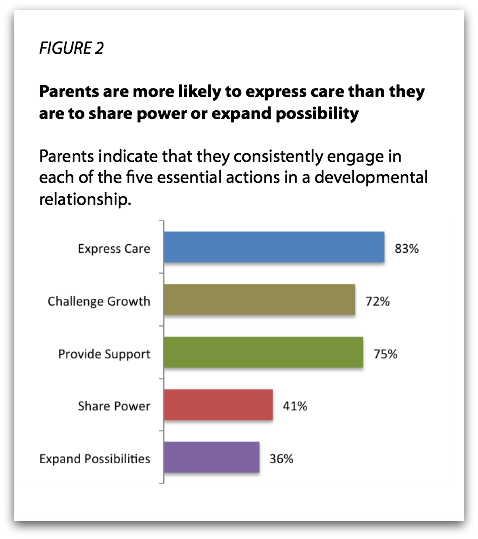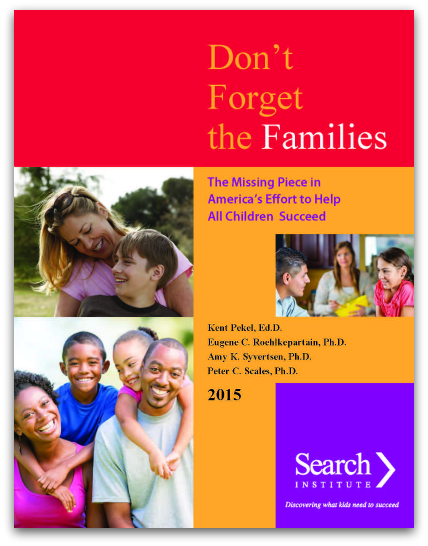
The Search Institute has a 2015 study entitled Don’t Forget the Families: The Missing Piece in America’s Effort to Help All Children Succeed. The study looks at how family relationships are a critical, but often overlooked, key to children’s development. The study examined 1,085 parenting adults of 3- to 13-year-olds from across the United States, finding that:
the quality of parent-child relationships is 10 times more powerful than demographics (race, ethnicity, family composition, and family income) in predicting whether children are developing critical character strengths they need for success in school and life. These strengths include being motivated to learn, being responsible, and caring for others.
The study provides a framework of five essential actions for parents. Kids need parents to:
Express Care: Show that you like me and want the best for me.
Challenge Growth: Insist that I try to continuously improve.
Provide Support: Help me complete tasks and achieve goals.
Share Power: Hear my voice and let me share in making decisions.
Expand Possibility: Expand my horizons and connect me to opportunities.

These numbers in Figure 2 indicate that parents are quick to express care while not as quick to share power or expand possibilities. These numbers were consistent across all backgrounds with no differences resulting from race, education, household income, etc..
Parents instinctively desire to help their children succeed and guide their children in their development. Yet, the authors of the study point out, parental engagement initiatives are often focused on how parents can support institutions of learning like schools but can “overlook the one thing about which parents care deeply and that can powerfully benefit their children’s development: relationships in the home.†The authors, expanding on this understanding of families as crucial to child development and learning, write:
There is a rich but perhaps untapped reservoir of relational power across the economic and cultural spectrum in the United States. With intentionality, it has even more potential to address the challenges that young people face while also nurturing in them key character strengths that are foundational for success in life.
This is a great body of research that affirms why it makes sense to #trustparents and to empower families. To read the whole report and access additional resources, click here. I’ve written a series of blog posts on Parental Engagement: here’s a post with more research, a post with tips for parents, and here is a link to access the whole series.
#TrustParents




